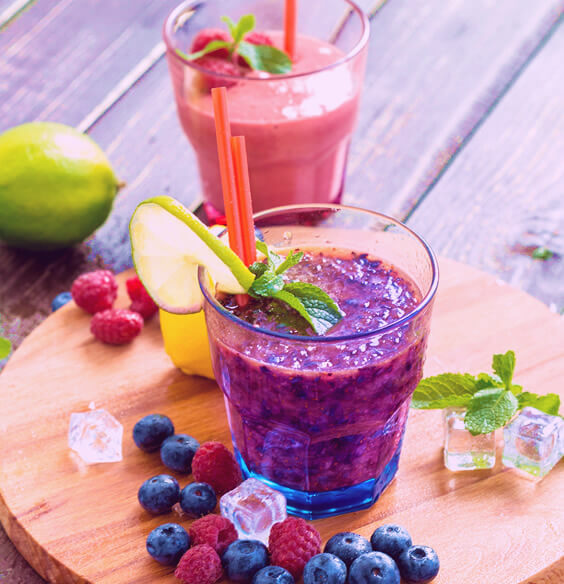
Plant-Based Diets & Gut Health: What You Need To Know
We recommend helpful products in our articles. Read our full disclosure here. The content on this website is not intended to be a substitute for professional advice, diagnosis, or treatment.
The gut, often called the body’s ‘second brain,’ significantly influences our overall health and well-being.
With a growing interest in plant-based diets, it’s crucial to understand their effects on our digestive system.
These plant-derived foods, comprising fruits, vegetables, grains, nuts, seeds, and legumes, bring many benefits that foster a balanced and robust gut environment.
This article delves into the intricate relationship between plant-based diets and gut health, highlighting their advantages and key considerations.
Protein
Protein is paramount in plant-based dietary discussions, dispelling the myth that these diets are protein-deficient.
Many plant foods are rich in protein, which plays an essential role in numerous bodily functions, including repairing and maintaining a healthy gut lining.
Legumes, such as lentils, chickpeas, and various beans, stand as powerhouses of plant-based protein, coupled with the added advantage of beneficial fiber.
Whole grains, including quinoa and barley, complement this by offering both energy and protein.
Additionally, nuts, seeds, and soy products like tofu and tempeh provide significant protein content and other vital nutrients and antioxidants beneficial for overall health.
Diverse sources of plant-based proteins ensure that the gut remains robust and functional.
While whole foods are ideal, vegan supplements from White Wolf Nutrition and similar brands can also efficiently meet the body’s protein needs.
Fiber
Fiber, predominantly found in plant foods, is a non-digestible carbohydrate that offers extensive benefits for the gut.
Regular intake of dietary fiber supports bowel regularity, which aids in preventing constipation and promotes overall colon health.
Moreover, specific types of fiber, known as prebiotics, fuel beneficial bacteria in the gut.
These friendly microbes ferment prebiotic fiber to produce short-chain fatty acids, which are crucial in maintaining the gut lining and reducing inflammation.
Additionally, fiber can help modulate blood sugar levels by slowing the absorption of sugar into the bloodstream.
This not only benefits those with diabetes or metabolic conditions but also supports a balanced gut environment by preventing the overgrowth of harmful bacteria that thrive on sugar.
Foods like whole grains (oats, quinoa, barley), legumes (beans, lentils, chickpeas), fruits (berries, apples, pears), and vegetables (broccoli, Brussels sprouts, carrots) are abundant in fiber.
When fermented by gut bacteria, these foods support bowel regularity and produce short-chain fatty acids that promote gut health.
Phytonutrients
While vitamins and minerals get most of the limelight, phytonutrients also wield notable health advantages.
These compounds not only give plants their vibrant colors but also protect them from environmental harm.
When consumed, they offer protective benefits for humans, including the gut.
Many phytonutrients have antioxidant and anti-inflammatory properties.
By mitigating inflammation, they help preserve the integrity of the gut lining, preventing conditions like leaky gut.
Some phytonutrients can even inhibit the growth of harmful bacteria, ensuring a balanced gut microbiome.
Incorporating various plant foods can ensure a diverse intake of these potent compounds.
Foods such as berries, leafy greens, cruciferous vegetables (like broccoli and cauliflower), and brightly colored vegetables (like bell peppers and tomatoes) are rich in phytonutrients.
These compounds protect the plants and provide antioxidant and anti-inflammatory benefits to our gut when consumed.
Natural Enzymes
Digestion is a sophisticated process, and certain plant foods provide invaluable support through natural enzymes.
Pineapples, rich in bromelain, and papayas, abundant in papain, stand out for their ability to aid in protein digestion.
These enzymes facilitate the breakdown of foods and have been associated with anti-inflammatory properties and relief from digestive discomforts.
Kiwifruit contains actinidin, which aids in breaking down protein-rich foods, while mangoes, as they ripen, increase in amylases—enzymes that assist in carbohydrate digestion.
These enzymes, when consumed, can lead to improved nutrient absorption and a reduction in common digestive issues like bloating.
Incorporating enzyme-rich plant foods into one’s diet offers a holistic approach to digestive health.
By naturally assisting the breakdown and absorption of vital nutrients, these foods pave the way for a balanced and thriving gut environment.
Lower Saturated Fats
Plant-based diets, especially those focusing on whole foods, inherently contain lower levels of saturated fats than those rich in animal products.
Saturated fats, commonly found in meats and dairy, have been linked with increased cholesterol levels and heart disease.
But what does this have to do with the gut?
Emerging research suggests that diets high in saturated fats might negatively influence gut bacteria composition.
This disruption can lead to dysbiosis, where the balance of beneficial versus harmful bacteria is skewed.
Dysbiosis can further contribute to inflammation and gut-related disorders.
One can promote cardiovascular and gut health by opting for foods low in saturated fats, like those in plant-based diets.
Foods such as avocados, nuts (like almonds, walnuts, and cashews), seeds (like flaxseeds, chia seeds, and hemp seeds), and olive oil provide healthy fats while being inherently low in saturated fats, supporting both heart and gut health.
Conclusion
A plant-based diet is more than just an ethical or environmental choice—it’s a commitment to holistic health.
With its wealth of diverse nutrients and compounds, such a diet reinforces the foundation of one’s well-being.
In essence, choosing plant-based is choosing overall health and balance.
"We love to research problems, examine studies, analyze solutions, and share with you ideas that make life healthier. You can learn about us and our editorial standards here. Have suggestions or feedback to share? Send us a message!."













Leave a Comment